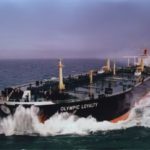Shipping Company Reaches $12 Million Plea Agreement To Resolve Environmental Charges

On December 1, 2020, Singaporean shipping company Pacific Carriers Limited (“PCL”) entered a $12 million plea agreement to resolve criminal charges that it knowingly failed to record illegal discharges of oil waste and garbage and concealed a hazardous condition aboard the M/V Pac Antares from the United States Coast Guard. The charges include a count of the infrequently used Ports and Waterways Safety Act (“PWSA”), which prohibits knowingly failing to notify the United States Coast Guard of a hazardous condition aboard a vessel. The PCL resolution serves as a reminder that the Department of Justice (“DOJ”) continues to aggressively enforce vessel offenses, and will likely continue to do so for the foreseeable future.
The PCL Resolution
PCL was charged with, and pleaded guilty to, violations of the Act to Prevent Pollution from Ships (“APPS”) and the PWSA, as well as obstruction of justice.1 The company admitted that crewmembers on the M/V Pac Antares – a 20,471 gross-ton, 586-foot commercial shipping vessel owned and operated by PCL – discharged oily bilge water and oily waste without using pollution-prevention equipment or logging the discharges on the ship’s oil record book.2 The crew also threw oily garbage and plastic overboard, then falsified the ship’s garbage record book to conceal the disposal.3
Further, the company admitted that the M/V Pac Antares’s crew stored oily waste in the ship’s duct keel, which is a 400-foot long space in the bottom-most part of the ship containing piping and electrical wiring.4 The duct keel was not designed to store such waste, and keeping oily waste in that part of the ship created a hazardous condition affecting “the safety of any vessel, bridge, structure, and shore area and the environmental quality of any port, harbor, and navigable waterway of the United States,” according to the criminal information filed against the company.5 PCL admitted that it willfully failed to disclose the hazardous condition to the United States Coast Guard, as required by PWSA regulations.6 As with violations of the APPS, violations of the PWSA are felony offenses.7
The company agreed to pay a $12 million criminal penalty and received a 4-year probation to resolve the charges against it.8 The company was also ordered to implement an Environmental Compliance Plan as a special condition of its probation.9
What this Means for You
The PLC case demonstrates DOJ’s continued commitment to enforcing criminal violations of environmental law in vessel cases. DOJ has a long history of bringing criminal cases against vessel owners and operators under the APPS, and the Department’s decision to also bring charges under the less-frequently enforced PWSA may signal a willingness to prosecute violations of the statute more frequently in future vessel pollution cases. Operators should therefore be mindful of storage activity in their vessels’ duct keel, as well as other conditions that may pose an environmental or safety risk while in U.S. waters.
The PCL case also serves as a reminder of the importance of maintaining effective internal controls. Sound internal controls include:
- Development of a risk-based program that is tailored to mitigate the company’s higher-risk activities;
- Investment of adequate financial resources in the program;
- Response and investigation procedures that involve qualified personnel, identify the root cause of any compliance issues, and recommend steps for remediation;
- Publication of the company’s policies in an easily accessible format;
- Dedicated training for those at the company responsible for compliance and issue detection that is tailored to the trainees’ sophistication;
- Demonstrated top-down “culture of compliance” that seeks input from senior management as well as the entire employee base;
- Implementation of a process for periodically evaluating the compliance program’s effectiveness, which may include audits of the company’s compliance functions; and
- Regular updates to the program based on the findings of those periodic evaluations.10
While APPS prosecutions like the PCL case have declined somewhat over the past few years, they have remained a staple element of DOJ’s environmental criminal enforcement program across multiple administrations. The general focus on environmental issues during President-elect Biden’s campaign suggests there will be continued aggressive criminal environmental prosecutions in the vessel area over the coming years. Shipping companies should therefore take the opportunity to proactively review their environmental compliance programs to shore up their efficacy and head off any unmitigated risks.
Source: Vinson & Elkins LLP

 Hellenic Shipping News Worldwide Hellenic Shipping News Worldwide, Online Daily Newspaper on Hellenic and International Shipping
Hellenic Shipping News Worldwide Hellenic Shipping News Worldwide, Online Daily Newspaper on Hellenic and International Shipping






















 PG-Software
PG-Software